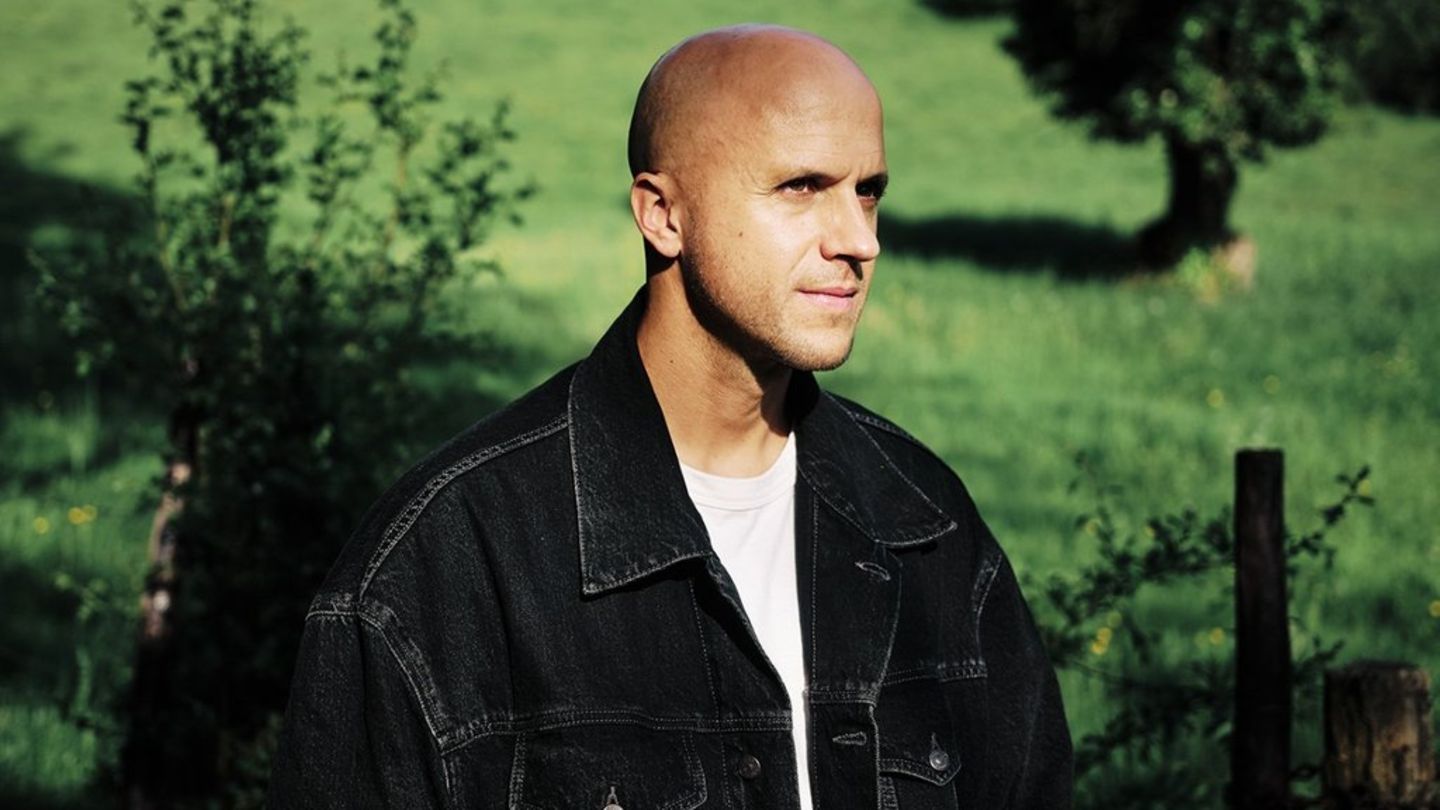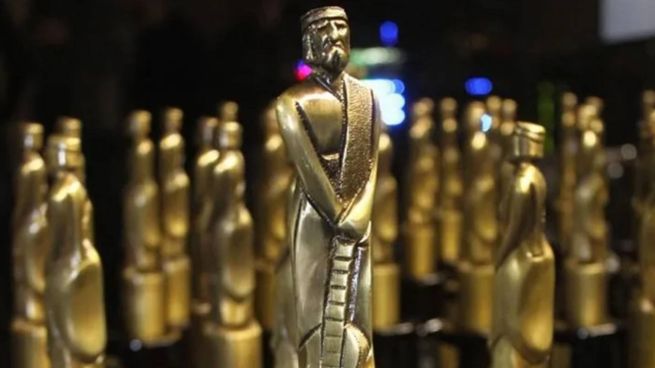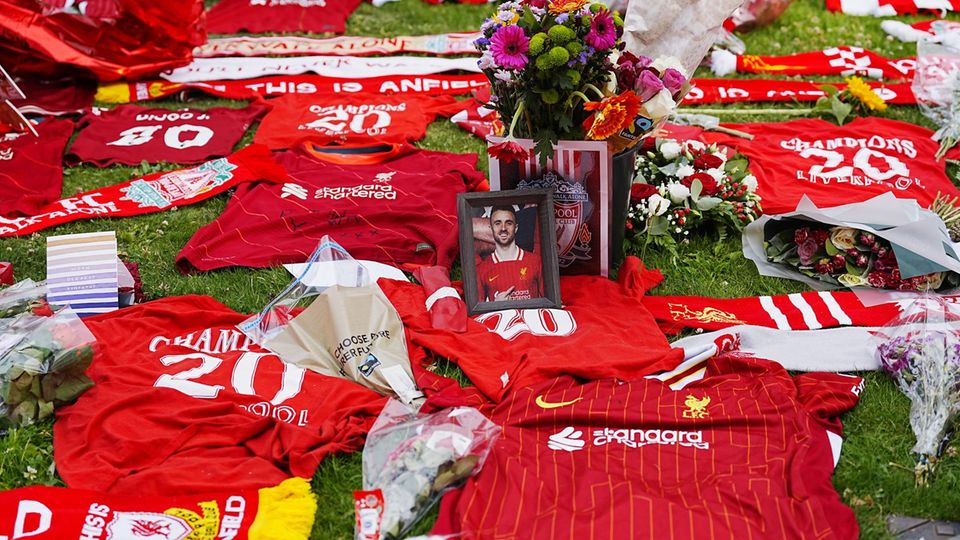Milow
He has been doing this for a long time than Beyoncé
Copy the current link
Add to the memorial list
In an interview, Milow speaks about the creation of the song with his late father and explains how he perceived the fires in La.
The Belgian singer-songwriter Milow (43) releases its new album “Boy Made Out of Stars” on February 21. The musician, who became known with songs like “You Don’t Know” and the covered “Ayo Technology”, also sings with his father who died in 2008. The artificial intelligence helped him, as he reveals in an interview with the news agency Spot on News. In addition, the singer, who is called Jonathan Vandenbroeck, tells how he experienced the forest fires in Los Angeles and which is why he recorded a music video for every song.
You baptized the album “Boy Made Out of Stars”. To what extent does she describe this personally or as a musician?
Milow: The name of an album was always very important to me to combine a collection of songs from two or three years. This time I already had the album title in my head before I knew how the album would sound. For me, the title has several levels. I like that the title refers to childish amazement to be naive and full of dreams. Many people remember the time when the world appeared like a magical place where everything was possible.
On another level, the title refers to the question of whether there is something bigger out there. For a long time it wasn’t a big deal in my life. But when I thought about it, it became clear to me that my connection to music is what comes closest to a spiritual dimension. I think too much, but the only time when I switch off my brain a little is when making music and singing. The third thing is that with the title I send a positive representation of a sensitive boy into the world – at a time when masculinity is a complicated topic.
On the album cover and in a music video you show yourself in a gray cowboy hat. Where does your love for Country come from?
Milow: Instruments such as Dobros and mandolins can be heard on the album. I’ve always loved her, but for me it was less about country than folk and the singer-songwriter tradition. I also used a Dobro at “Ayo Technology” and never thought about it. At that time they were not heard on the radio, it was a very uncool instrument. I even remember how Labels from other countries told me that Germany doesn’t like country music. But you shouldn’t think too much about it. It works in the song and it was always part of me, especially with live shows.
I also made albums that were less of these acoustic instruments, but now I have allowed myself to have more fun with them again. Because if Beyoncé now writes country songs, I can say: I’ve always done that, that is not new to me. I don’t jump on a trend. That is what Milow has always been. I enjoyed it to allow that again. In a way, country music has become the new rock music today. The largest rock bands are now bands that belong to the country genre.
You always have your acoustic guitar with you. Could you ever do without you and only express or realize through the vocals?
Milow: There are times when I take a little distance from the guitar to concentrate more on the singing. In the studio I often wanted to focus on the vocals this time. I played a lot of piano when I worked on the songs at home. I don’t play the piano very well, but it was just a way to gain some distance from the guitar. It is a constant back and forth with me. After all these years we are like old buddies, we have known each other for a long time. Sometimes we go a little at a distance, but it just feels so natural with the guitar. It is so powerful that I can play these songs alone in my living room with my acoustic guitar. This is such an important test for a song. I could give a concert tomorrow without I needed my band.
Why was it important to you to record your own music video for every song on the album?
Milow: I am someone who acts very impulsively and intuitively and has crazy ideas, simply because I can have fun. I have learned over the years that when I enjoy the music, people feel it and it is contagious. Videos are important for me because I attended a film school in Brussels for a year at the age of 18. For a while I thought I wanted to be a film director. I also noticed that it contradicts me when I decide to only make videos for two or three songs per album. I know that many are because of the radio single, but not me. Most of my favorite songs have never received a video. And it sends a strange signal to my audience that I prefer some songs. So I came up with the idea of using the budget that I had for two or three videos, more intelligent by turning more simple videos instead of few larger ones.
Some of the videos were shot in Los Angeles, one of their two home. How close did you have the situation with the forest fires?
Milow: It is incredible on so many levels. I just came back from Belgium after the holidays and then the craziest that can happen. I had the feeling that it was so close, closer than before. Usually the forest fires in the mountains are and do not affect the houses as much. But this time it was very different. It was the worst possible combination of things that came together. I was currently completing a book about the album, and I realized that this album was my love letter to Los Angeles. Many of the songs were written here, many of the videos were shot here, and it is this place that has saved me in the past twelve years. I live half of the time here and it gave me so much. My children were born here, they grow up here. When I’m completely exhausted after a tour, I come here and that gives me energy to continue.
On her album there is a very personal song with “Family Tree”, in which her late father can also be heard. For a long time they could not listen to the audio files used. What made you do it?
Milow: I already knew some of my father’s songs from 1975. At his funeral, a few of his brothers sang the songs. Then one of his sisters gave me the record and I took it to the studio. My excuse was initially that I didn’t have a functioning turntable, but it was more than that. I was not ready yet and wanted to wait for the right time. At the end of the recording of my last album, I suddenly thought of it. I said to myself: “Okay, I’ll take a break from the song letter, but when I’m ready again, I will play you and see what inspiration and emotions it arouses and do something with it.”
It was then very strange not only to hear my father’s voice, but his 20-year-old voice. I realized how much I owe him to his music genes and that I grew up in a house with a guitar and a piano. He was not a musician later, but when I was small he made a lot of music. So it moved me back into an innocent time. In the song, AI helped me to see his voice clearly and clearly from the very bad recording. If I had done something similar ten years ago, I would only have written about his song. I have also undergone various phases over the years. In the beginning I was frustrated and angry with some of our conflicts. So these emotions were not the right ones to hear this song. It took me some time to let her go so that I could get it really.
In the song you chose a happy instead of a melancholic melody. For what reason?
Milow: It was a very conscious decision, because the few songs I wrote about my father are thoughtful, emotional and maybe also sad. This song is also emotional, but I wanted it to be celebrating our common family history. Because isn’t it surprising that my father started writing songs, probably dreamed of a career, and his son continues where he stopped and lifts it to the next level? If he saw me now, it would be incredible. So I wanted it to be a happy song. I also wanted it to be a big song. I can play it in a quiet singer-songwriter version, but I love that he has the wind players and the big band sound. I will love to play him live.
Spotonnews
Source: Stern
I am an author and journalist who has worked in the entertainment industry for over a decade. I currently work as a news editor at a major news website, and my focus is on covering the latest trends in entertainment. I also write occasional pieces for other outlets, and have authored two books about the entertainment industry.




